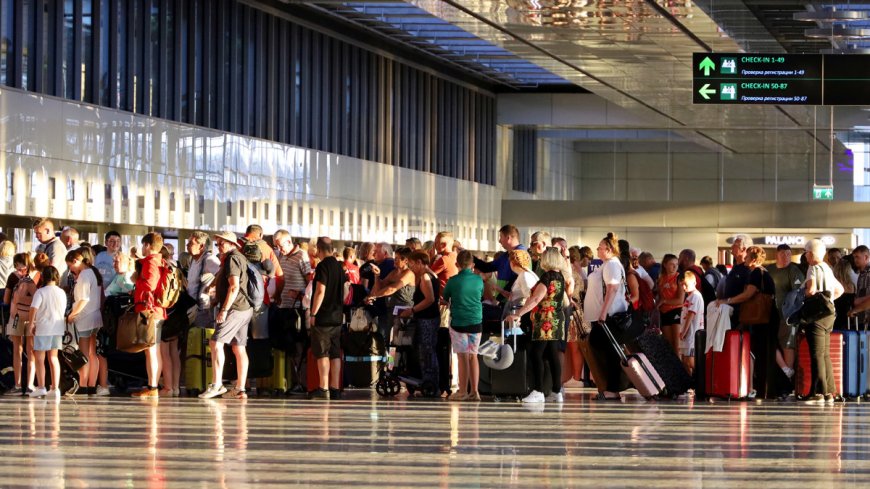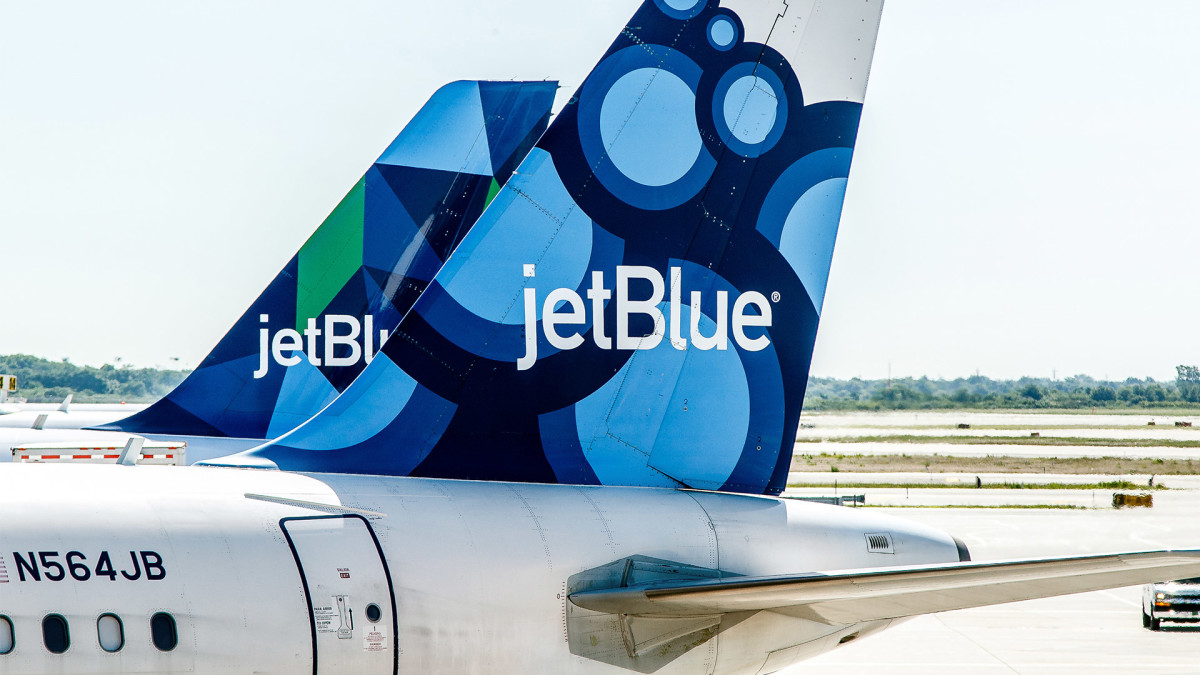JetBlue's key fee hike is a big win for Southwest Airlines
The airline has struggled to find a way forward since the U.S. government blocked its merger with Spirit Airlines.

JetBlue Airlines built its business using a model that mixes a little bit of Southwest's non-traditional pricing with some more traditional pricing policies. A value-based airline, the company generally offered lower prices than American, Delta, and United Airlines while also offering better perks.
There was a time when having live television at every seat for no added fee was a massive differentiator. The traditional carriers may have had in-seat screens in first or business class but coach passengers had to watch movies on tiny, shared overhead screens.
Related: Food delivery service closes, bankruptcy filing likely
Now, mobile phones, onboard internet, and streaming services allowing downloads makes JetBlue's (JBLU) signature perk less valuable. In reality, JetBlue has become a lot closer to being a traditional carrier especially when you consider its baggage policies.
As a true low-cost airline, Southwest includes up to two checked bags as part of even its most basic fare. JetBlue has not reached Spirit or Frontier levels where it charges for carry-on bags, but it forced passengers to either pay up or stick to a carry-on that fits in the overhead compartment and a personal item (like a purse or small backpack),
Now, after just raising its baggage prices, JetBlue has done so again and is using a system that can push prices even higher. Image source: Shutterstock
JetBlue adopts a popular practice
Airlines, like theme parks, already use dynamic pricing when it comes to tickets. It costs more to visit Disney World during school vacations because more people want to visit during those periods.
Walt Disney can charge more during those periods which might lead to some visitors booking their vacation during less attractive times. It's a system that both maximizes revenue on busier days and pushes audience to days that may otherwise be slow.
Airlines use the same system when it comes to selling tickets. If you want to fly south in the winter, it costs more. The same thing is true for school vacations or getting to a popular destination for a huge event.
It generally costs more, for example, to fly to Las Vegas during CES or a major event like the Super Bowl. That's a simple supply and demand calculation.
Airlines, however, have generally not used dynamic pricing to set added-fee costs like baggage fees, alcoholic beverages, or internet. JetBlue is changing that by using dynamic or demand-based pricing for checked bags during peak times.
JetBlue adopts dynamic pricing
Consumers understand dynamic pricing when it's used for theme park or plane tickets. They're less understanding when it's used in other ways as Wendy's recently learned when it tried to test using it to sell burgers for higher prices during peak times.
"Not only do they charge more for bags within 24 hours of departure (people will pay checked bag fees for the discount and in some cases check fewer bags, so JetBlue pockets money for bags that are never even checked) they are also taking inspiration from Wendy’s with variable pricing based on ‘peak’ and ‘off-peak’ travel," View From the Wing reported.
During off-peak times, JetBlue charges $45 for the first checked bag and $60 for a second. That goes up to at least $50 and $70 during peak times, but demand could push the prices higher. The airline will give a $10 discount for customers who book checked bags in advance.
That's not an act of kindness. It's done because some passengers will pay for more bags than they actually check.
Airlines like JetBlue are essentially encouraged by the U.S. government to take away included items and charge non-fare fees for them. That's because of how taxes are set up for airlines.
"The government charges a 7.5% excise tax on domestic airfares but that doesn’t apply to fees, so U.S. airlines are saving about a third of a billion dollars in taxes by charging bag fees – and the higher they go the more tax they save," the website added.
That makes it more impressive (and exceedingly customer friendly) that Southwest continues to not charge fees for up to two checked bags for passengers.
What's Your Reaction?


























































